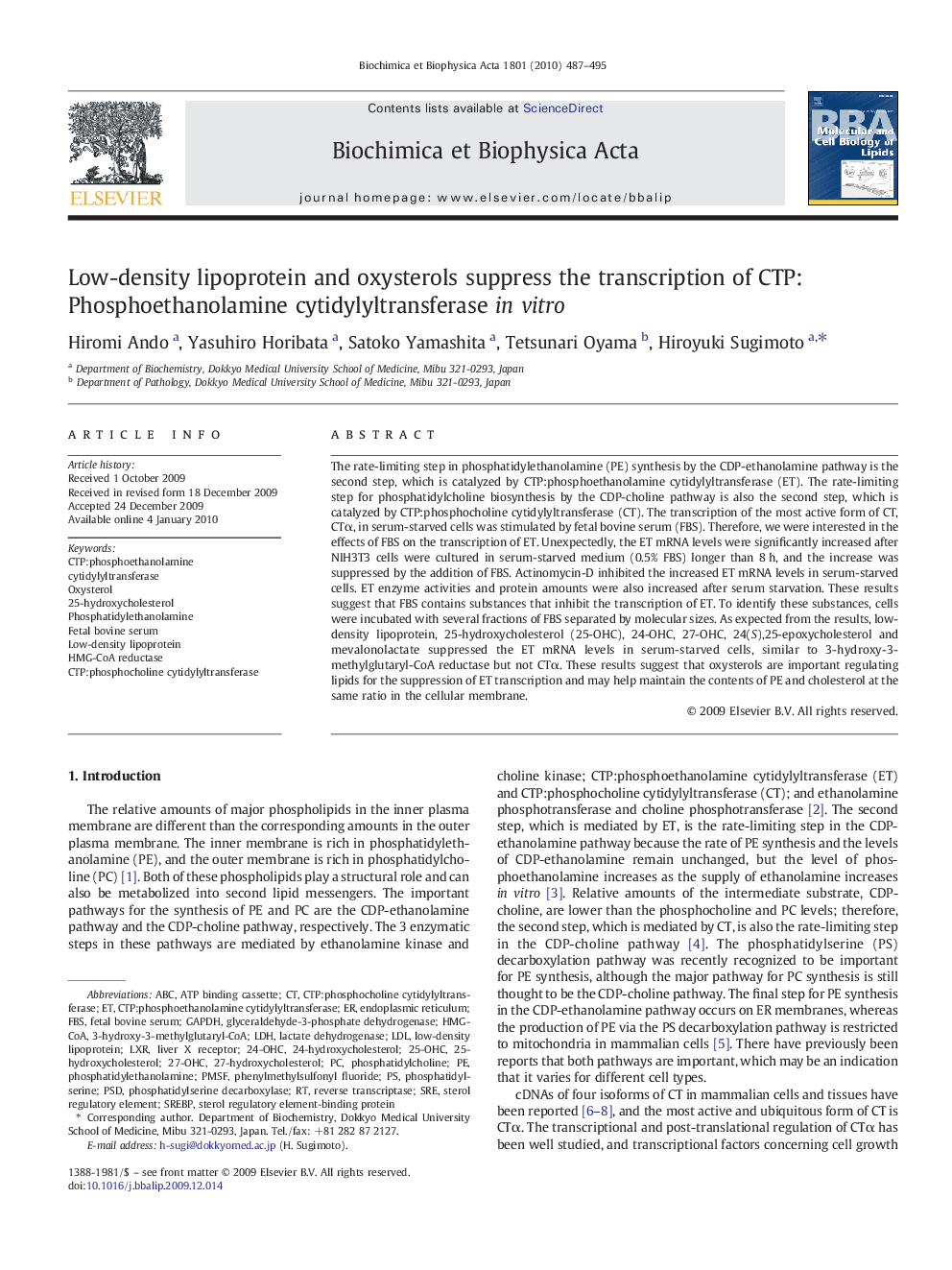| Article ID | Journal | Published Year | Pages | File Type |
|---|---|---|---|---|
| 1949765 | Biochimica et Biophysica Acta (BBA) - Molecular and Cell Biology of Lipids | 2010 | 9 Pages |
The rate-limiting step in phosphatidylethanolamine (PE) synthesis by the CDP-ethanolamine pathway is the second step, which is catalyzed by CTP:phosphoethanolamine cytidylyltransferase (ET). The rate-limiting step for phosphatidylcholine biosynthesis by the CDP-choline pathway is also the second step, which is catalyzed by CTP:phosphocholine cytidylyltransferase (CT). The transcription of the most active form of CT, CTα, in serum-starved cells was stimulated by fetal bovine serum (FBS). Therefore, we were interested in the effects of FBS on the transcription of ET. Unexpectedly, the ET mRNA levels were significantly increased after NIH3T3 cells were cultured in serum-starved medium (0.5% FBS) longer than 8 h, and the increase was suppressed by the addition of FBS. Actinomycin-D inhibited the increased ET mRNA levels in serum-starved cells. ET enzyme activities and protein amounts were also increased after serum starvation. These results suggest that FBS contains substances that inhibit the transcription of ET. To identify these substances, cells were incubated with several fractions of FBS separated by molecular sizes. As expected from the results, low-density lipoprotein, 25-hydroxycholesterol (25-OHC), 24-OHC, 27-OHC, 24(S),25-epoxycholesterol and mevalonolactate suppressed the ET mRNA levels in serum-starved cells, similar to 3-hydroxy-3-methylglutaryl-CoA reductase but not CTα. These results suggest that oxysterols are important regulating lipids for the suppression of ET transcription and may help maintain the contents of PE and cholesterol at the same ratio in the cellular membrane.
